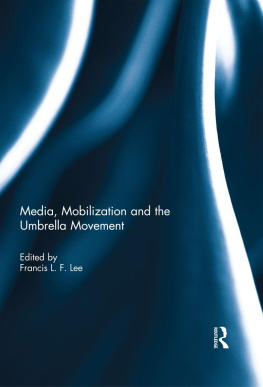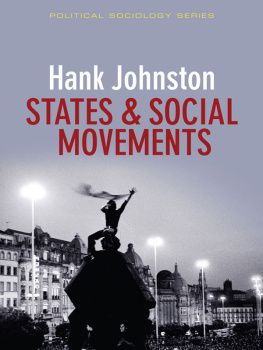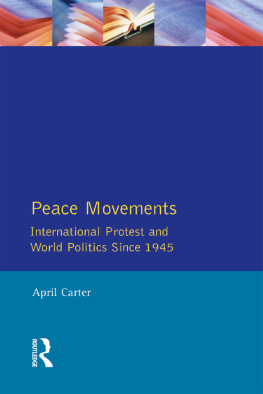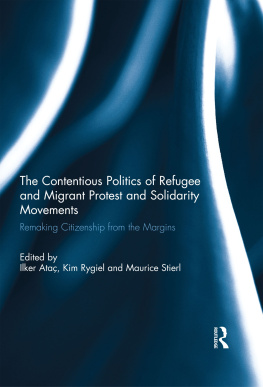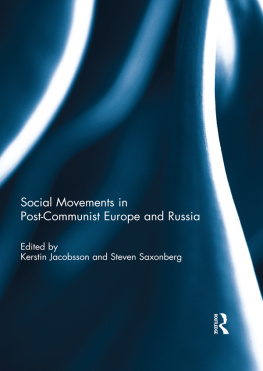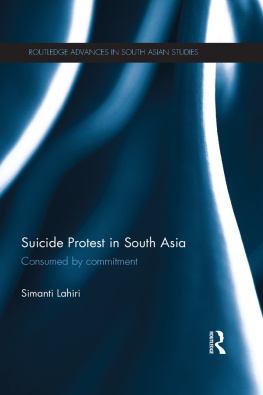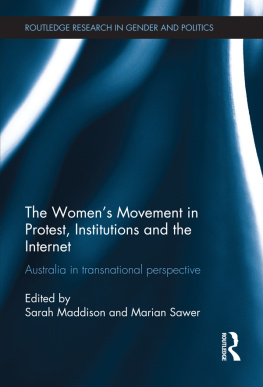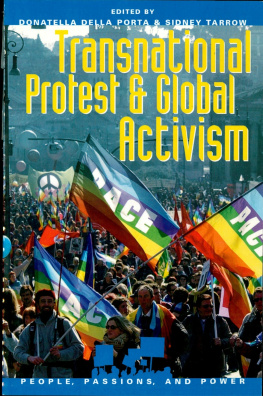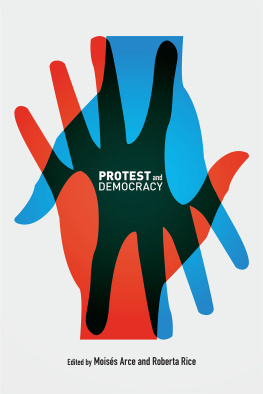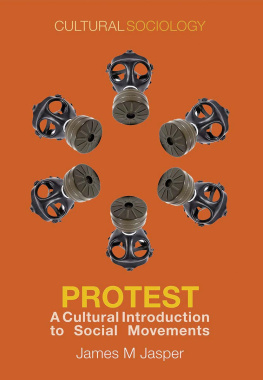Protest Beyond Borders
Protest, Culture and Society
General editors:
Kathrin Fahlenbrach, Institute for Media and Communication, University of Hamburg.
Martin Klimke, New York University, Abu Dhabi.
Joachim Scharloth, Technical University Dresden, Germany.
Protest movements have been recognized as significant contributors to processes of political participation and transformations of culture and value systems, as well as to the development of both a national and transnational civil society.
This series brings together the various innovative approaches to phenomena of social change, protest and dissent which have emerged in recent years, from an interdisciplinary perspective. It contextualizes social protest and cultures of dissent in larger political processes and socio-cultural transformations by examining the influence of historical trajectories and the response of various segments of society, political and legal institutions on a national and international level. In doing so, the series offers a more comprehensive and multi-dimensional view of historical and cultural change in the twentieth and twenty-first century.
Volume 1
Voices of the Valley, Voices of the Straits:
How Protest Creates Communities
Donatella della Porta and Gianni Piazza
Volume 2
Transformations and Crises: The Left and the Nation in Denmark and Sweden, 19561980
Thomas Ekman Jrgensen
Volume 3
Changing the World, Changing Oneself: Political Protest and Collective Identities in West Germany and the U.S. in the 1960s and 1970s
Edited by Belinda Davis, Wilfried Mausbach, Martin Klimke, and Carla MacDougall
Volume 4
The Transnational Condition: Protest Dynamics in an Entangled Europe
Edited by Simon Teune
Volume 5
Protest Beyond Borders: Contentious Politics in Europe since 1945
Edited by Hara Kouki and Eduardo Romanos
Volume 6
Between the Avant-garde and the Everyday: Subversive Politics in Europe from 1957 to the Present
Edited by Timothy Brown and Lorena Anton
Volume 7
Between Prague Spring and French May: Opposition and Revolt in Europe, 19601980
Edited by Martin Klimke, Jacco Pekelder, and Joachim Scharloth
Volume 8
The Third World in the Global 1960s
Edited by Samantha Christiansen and Zachary A. Scarlett
Volume 9
The German Student Movement and the Literary Imagination: Transnational Memories of Protest and Dissent
Susanne Rinner
Protest Beyond Borders
Contentious Politics in Europe since 1945
Edited by
Hara Kouki and Eduardo Romanos
First published in 2011 by
Berghahn Books
www.berghahnbooks.com
2011, 2013 Hara Kouki and Eduardo Romanos
First paperback edition published in 2013
All rights reserved. Except for the quotation of short passages
for the purposes of criticism and review, no part of this book
may be reproduced in any form or by any means, electronic or
mechanical, including photocopying, recording, or any information
storage and retrieval system now known or to be invented,
without written permission of the publisher.
Library of Congress Cataloging-in-Publication Data
Protest beyond borders : contentious politics in Europe since 1945 / edited by Hara Kouki and Eduardo Romanos.
p. cm. (Protest, culture and society ; v. 5)
Includes bibliographical references and index.
ISBN 978-1-84545-747-1 (hardback) ISBN 978-1-84545-995-6 (ebook) ISBN 978-1-78238-117-4 (paperback)
1. EuropePolitics and government1945- 2. Protest movementsEuropeHistory. 3. Social movementsEuropeHistory. 4. Social integrationEuropeHistory. 5. TransnationalismPolitical aspectsEuropeHistory. 6. TransnationalismSocial aspectsEuropeHistory.I. Kouki, Hara. II. Romanos, Eduardo.
D843.P75 2011
940.55dc22
2010024068
2009025367
British Library Cataloguing in Publication Data
A catalogue record for this book is available from the British Library
ISBN 978-1-78238-747-1 hardback
ISBN 978-1-78238-117-4 paperback
ISBN 978-1-84545-995-6 ebook
Contents
Kathrin Fahlenbrach, Martin Klimke, and Joachim Scharloth
Hara Kouki and Eduardo Romanos
Andrew Oppenheimer
Celia Donert
Hara Kouki
Aron Buzogny
Simon Teune
Johanna Niesyto
Lorenzo Bosi
Eduardo Romanos
Dominik Lachenmeier
Mariya Ivancheva
Swen Hutter
Donatella della Porta
Preface
Kathrin Fahlenbrach, Martin Klimke, and Joachim Scharloth
In recent years, the transnational dimension of protest movements has received attention from a wide audience outside of as well as within academic circles. However, the diverse historical roots of many of todays transnational activist networks or NGOs are still surprisingly unexplored by the research community. Although the turbulent social movements of 1960/70s are increasingly viewed as social and cultural responses to emerging patterns of an economic, technological, and political globalization, their European dimension has only been marginally analyzed.
This is all the more surprising given the fact that protest movements in Europe after the Second World War have increasingly acted within a transnational public sphere, particularly since the 1960s. On the one hand, their political, social, and cultural goals reflected international political developments (e.g., in their opposition to military intervention or their protest against global economic developments). On the other hand, national protest movements have strategically used transnational mass media effectively to mobilize and to address both a domestic and an international public, which they additionally tried to influence by creating alternative media networks. Yet, there seems to be a lack of international comparison that could not only systematically describe the similarities and differences between the single national movements, but also evaluate how they contributed to the evolution of a (trans-)national civil society in Europe. Especially during the Cold War, the (albeit difficult) diffusion of Western media, cultural items, and practices into Eastern Europe was an important interface across the ideological divide. After the collapse of the Soviet Union and the Warsaw bloc system, the various political, social, and cultural developments then provided vastly new possibilities for the evolution of a European public sphere.
To overcome this research deficit, an international research network on European Protest Movements Since 1945 was established in 2006 with the support of the European Commission. By now, it boasts more than 250 affiliates from more than 30 countries and numerous disciplines, and it has established a permanent platform that fosters cross-disciplinary dialogue and exchange on the phenomena of dissent and social protest across the world. As is reflected in its publications, online guides, and conferences and workshops, one of the main areas of concentration of this network has been the impact that European protest movements had, not only in paving the way for a substantial change of the domestic systems, but also how they influenced the emergence of a (trans-)national civil society and the transformation of the public sphere after the Second World War.


